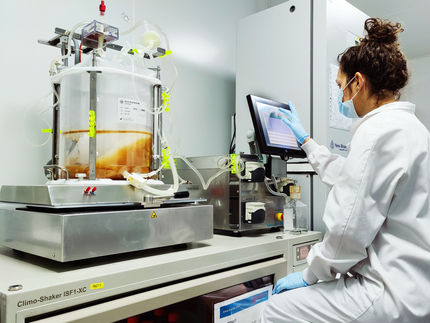Medicago discovers breakthrough method of preparing plant derived recombinant proteins and VLPs
Advertisement
Medicago Inc. announced it has filed two international patent applications under the Patent Cooperation Treaty (PCT) that broadly cover new methods of preparing plant-derived recombinant proteins and VLPs.
"The extraction and purification of recombinant proteins and complex structures such as VLPs from plant cell impurities has been a major impediment to the development of our industry since its early days. Current methods rely on mechanical breakdown of plant biomass to separate recombinant proteins and VLPs from plant cells. Unfortunately these methods also frees plant impurities from the plant cell, which render downstream purification more costly and complex." said Louis Vézina, Chief Scientific Officer of Medicago. "We have discovered and filed patent applications for a new method of biochemical degradation that releases recombinant proteins and/or VLPs in the extract and eliminates most plant-originating impurities in one single-step which greatly simplifies subsequent purification steps."
"These new patent applications will enhance the company's IP position, and establish our competitive advantage with respect to the development of VLPs and other recombinant proteins in plants. We have successfully applied our process to a broad range of VLPs and recombinant proteins such as antibodies," said Andy Sheldon, President and CEO of Medicago. "Our new purification process will reduce cost, allow for a simpler regulatory process, and provide easier technology transfer for potential licensees. We hold all intellectual property rights related to our purification process and believe our innovative method is a key technology for the future of our industry."
Other news from the department research and development
Most read news
More news from our other portals
See the theme worlds for related content
Topic world Antibodies
Antibodies are specialized molecules of our immune system that can specifically recognize and neutralize pathogens or foreign substances. Antibody research in biotech and pharma has recognized this natural defense potential and is working intensively to make it therapeutically useful. From monoclonal antibodies used against cancer or autoimmune diseases to antibody-drug conjugates that specifically transport drugs to disease cells - the possibilities are enormous

Topic world Antibodies
Antibodies are specialized molecules of our immune system that can specifically recognize and neutralize pathogens or foreign substances. Antibody research in biotech and pharma has recognized this natural defense potential and is working intensively to make it therapeutically useful. From monoclonal antibodies used against cancer or autoimmune diseases to antibody-drug conjugates that specifically transport drugs to disease cells - the possibilities are enormous



























































